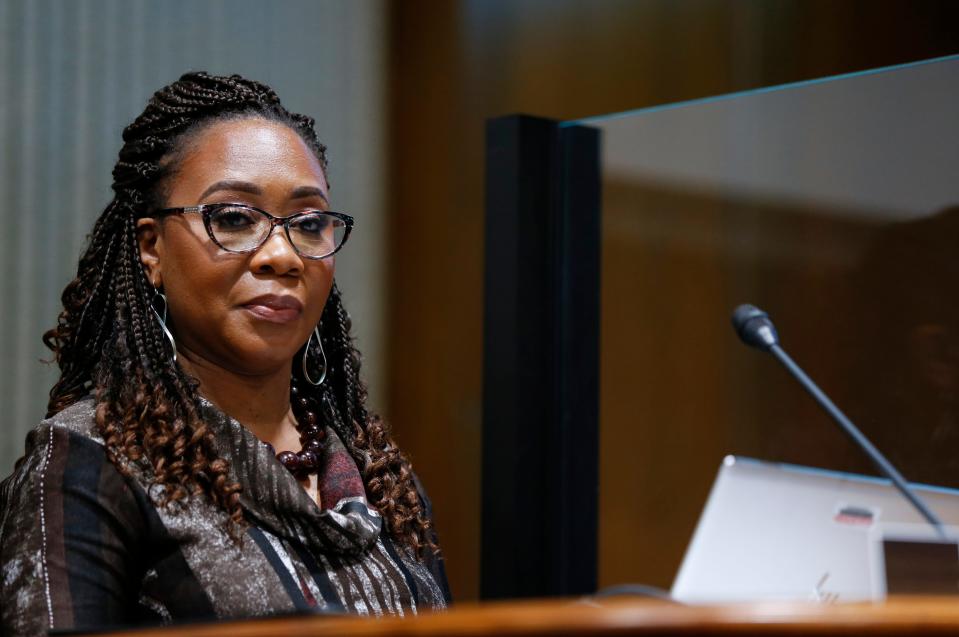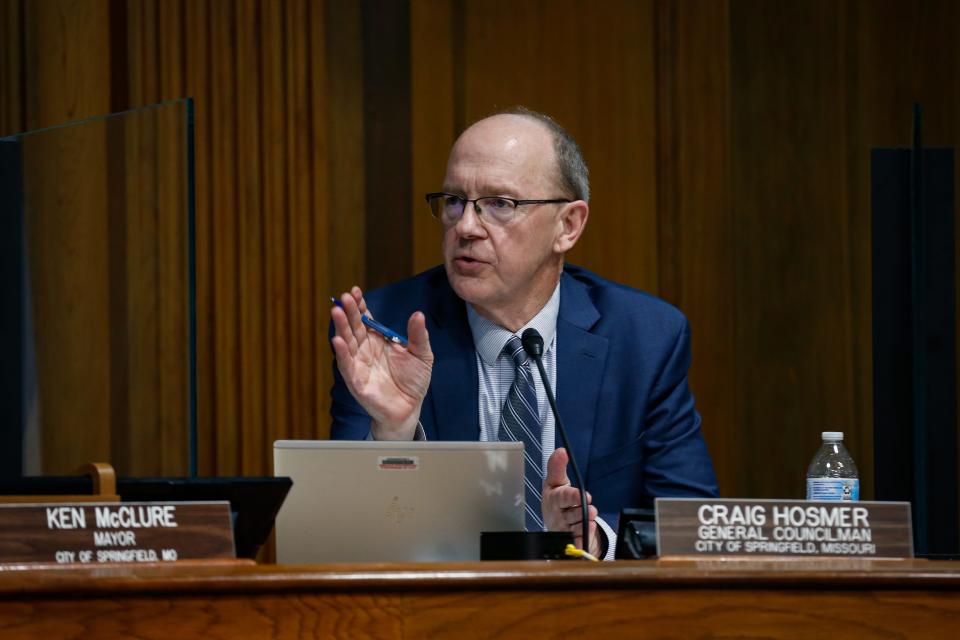Springfield renters could have 'unique' authority in liquor license protests
Those renting within 200 feet of a business applying for a liquor license may soon have more power to oppose liquor sales in their neighborhood. Changes to the notification process of liquor license applications in residential neighborhoods are moving forward, aiming to give tenants the uncommon ability to protest.
Currently, neighbors of businesses that apply for a liquor license are notified via signage on the property and only owners have the power to submit a protest petition. The proposed changes would mail out notices to both the owners and renters of nearby residential properties, bringing both the notification and protest petition information directly into the hands of those who live and own homes nearby.
The amendments to the process were in front of the Planning & Zoning Commission Thursday evening where Senior Planner Daniel Neal said the changes giving tenants the protest power would be a "unique aspect" to the code provisions, as no other processes currently give tenants that say.
What exactly would be changing?
The proposed changes include requirements to mail out notices to all occupants and residential property owners within 200 feet of the property applying for a liquor license. Both owners and tenants would then have the opportunity to submit a protest petition within 21 days. If 50% or more of the residential properties sign the petition, the application would head to Springfield City Council instead of being approved administratively. This only applies to properties zoned for single-family and two-family residential use however, not multi-family housing that may include numerous tenants.
In the event of protest, only one signature per parcel would be counted. If the owner and occupant disagree, the owner would prevail whether they support or oppose liquor sales.
Currently, liquor license applications do not require notices to be mailed, though the process is similar to that of rezonings and short-term rental applications. As the process stands right now, only owners have the ability to protest but the 50% threshold is still required within the 21-day timeline.
What is the motivation for the change?
Quincy Coovert, licensing supervisor for the city, told the commission that the department has received complaints in the past about the signage not being sufficient in notification. She said the code is also vague about the signage requirements, simply noting that four signs must be posted in the vicinity of the property.

Council passed a resolution to guide city staff to amend the notification process in November. The effort, lead by Councilwoman Monica Horton, received unanimous support. Horton noted that the current notification process includes accessibility obstacles to submit a petition and, with the 21-day timeline, could pose time restrictions if a protestor notices the sign only later on. With homeownership in Springfield sitting only at 42%, giving renters more voice in this regard made sense to Horton and the rest of council.
"I think one of the most important things we can do for neighborhoods, preserve neighborhoods in the city of Springfield, is to make sure that they have some say in who becomes a neighbor," Councilman Craig Hosmer said at the November meeting.

More: Tenants group criticizes plan to use remaining ARPA funds for sports complex, city hall
P&Z recommended the approval of the amendments 5-2 with commissioners Randall Doennig and Eric Pauly opposing and Betty Ridge and Natalie Broekhoven absent. Before voting, Doennig noted that the signage concerns were not addressed in the amendments despite that being the impetus for the amendments and asked about any time stipulations for reapplying due to renter turnover. The amended procedure does not have a time element.
The changes will next appear in front of council on April 8.
Marta Mieze covers local government at the News-Leader. Have feedback, tips or story ideas? Contact her at mmieze@news-leader.com.
This article originally appeared on Springfield News-Leader: Springfield renters could get unique say in blocking liquor licenses
